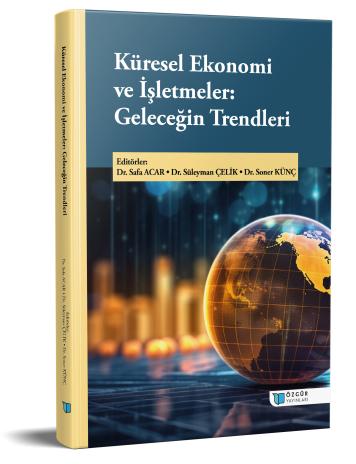
Küreselleşmenin Turizm Destinasyonlarına Yansıması
Şu kitabın bölümü:
Acar,
S.
&
Çelik,
S.
&
Künç,
S.
(eds.)
2024.
Küresel Ekonomi ve İşletmeler: Geleceğin Trendleri.
Özet
Dünyanın artık “küresel köy” haline geldiği günümüzde (Bahar ve Kozak, 2005) küreselleşme, dünya genelinde bulunan ekonomik sistemler üzerinde önemli bir etki yaratmıştır (Kose vd., 2010). Ülkeler arasındaki sosyo-kültürel ekonomik, siyasi ve kültürel sınırların ortadan kalkmasını ve tüm dünyanın bütünleşmesini sağlayan küreselleşme hareketi, ülkeler arasındaki ticaret ve yatırımların serbestçe yapılmasına, teknolojik gelişmeler ile ulaşımın daha hızlı ve daha konforlu hale gelmesine neden olmuştur. Bu gelişmelerle birlikte insanların yeni yerler keşfetme ve farklı kültürler tanıma arzusu turizmin küresel boyutta hızlı bir şekilde gelişmesini sağlamıştır (Ercan, 2010). Küreselleşme çağı, dünyanın küçülmesine ve daha erişilebilir hale gelmesine neden olmuş, uluslararası turizm sektörünün de gelişmesine ve dönüşmesine önemli ölçüde katkı sağlamıştır (Çakırtaş ve Genç, 2024). Turistik deneyim yaşanmasına imkân sağlayacak biçimde arz olanaklarının bir araya getirildiği bölgeler olarak adlandırılan (Çakıcı ve Aksu, 2007) turizm destinasyonları “turizm faaliyetlerinin gerçekleştiği bir yer, bir anı, bir çekicilik, coğrafi bir birim, bir ilişki, bir pazarlama öznesi” olarak tanımlanmaktadır (Framke, 2002). Küreselleşme sürecinden tüm sektörler gibi turizm sektörü de doğrudan etkilenmiştir. Turizm faaliyetlerinin gerçekleştirildiği destinasyonlar küreselleşme sürecinden teknolojik, ekonomik, sosyo-kültürel ve çevresel açılardan hem olumlu hem de olumsuz yönde etkilenmiştir (Buluk ve Özkök, 2016). Bu çalışmada küreselleşme olgusunun turizm destinasyonlarında yarattığı teknolojik, ekonomik, sosyo-kültürel ve çevresel etkilerin incelenmesi amaçlanmıştır.

